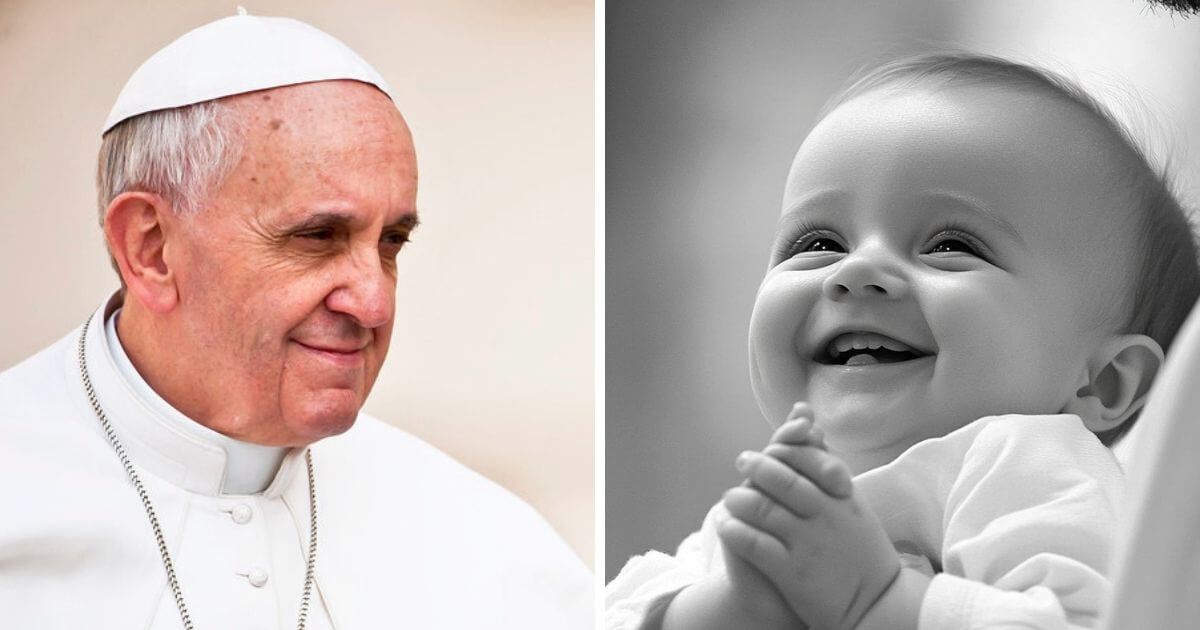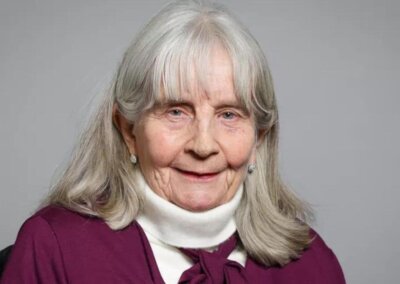After a papacy strongly opposed to abortion, assisted suicide and euthanasia, Pope Francis, who died earlier this week, has been praised for being “passionately pro-life”.
Pope Francis, 88, who died in Rome on Easter Monday after suffering a stroke and heart failure, regularly spoke about the importance of respect for human life at all stages during his twelve-year papacy. This was most recently summed up in his New Year message for 2025, in which Pope Francis reminded his listeners to reject abortion and called for a “firm commitment” to protect life at all stages.
He said “I ask for a firm commitment to respect the dignity of human life from conception to natural death, so that each person may cherish his or her own life and all may look with hope to the future”.
He also called on everyone to care for “every child born of a woman” and to protect “the precious gift of life: life in the womb, the lives of children, the lives of the suffering, the poor, the elderly, the lonely and the dying”.
Strong language used to show gravity of abortion
Pope Francis used strong language to oppose abortion and, in 2014, lamented the “victims of abortion, who will never see the light of day”.
“Unfortunately, what is thrown away is not only food and dispensable objects, but often human beings themselves, who are discarded as unnecessary”.
Support and compassion for women who have had abortions
Alongside his firm opposition to abortion, a notable feature of Pope Francis’ pro-life work was expressing compassion for women who have had abortions, aligning with the approach of the pro-life movement.
Speaking of difficult situations that led some women to seek an abortion, he said he was “well aware of the pressure that led them to this decision”, and called the decision to have an abortion an “existential and moral ordeal”. Often, he said, women “believe that they have no other option” than to seek an abortion, adding that he had “met so many women who bear in their heart the scar of this agonising and painful decision”.
Pope Francis strived to establish an attitude of forgiveness in the Catholic Church towards women who have had abortions.
Breda O’Brien, spokeswoman for the pro-life organisation Iona Institute, highlighted the “understanding” approach taken by Pope Francis towards women who had had abortions, which was “very much in terms of understanding why women would want to have abortions, and making conditions better that drove women to abortion”. As someone who was “passionately pro-life”, he also urged leaders to improve living conditions for those women who may have felt pressured into having an abortion, O’Brien said.
Pope Francis’ call to create a “civilisation of love”
He underlined the importance of both the mother and unborn child in a message to pro-life group, the Italian Movement for Life, in March. He called for a “civilisation of love”, which enables women to be free “from the pressures that push them not to give birth to their child”.
He said “Continue to place your trust in women, in their capacity for welcome, generosity, and courage”, and emphasised the importance of standing up for each unborn child, which “represents, in the fullest sense, every man and woman who does not count, who has no voice. Taking their side means standing in solidarity with all the discarded of the world”.
Opposition to assisted suicide and euthanasia
Pope Francis was also outspoken in his opposition to assisted suicide and euthanasia, particularly condemning the justification of euthanasia as a “compassionate” act and calling instead for support and care for those who are sick. A letter approved by Pope Francis said “In the face of seemingly ‘unbearable’ suffering, the termination of a patient’s life is justified in the name of ‘compassion’. This so-called ‘compassionate’ euthanasia holds that it is better to die than to suffer, and that it would be compassionate to help a patient to die by means of euthanasia or assisted suicide”.
“In reality, human compassion consists not in causing death, but in embracing the sick, in supporting them in their difficulties, in offering them affection, attention, and the means to alleviate the suffering”.
Towards the end of last year, as France planned to debate euthanasia, Pope Francis addressed a group of French politicians and confirmed his opposition, also underlining the importance of palliative care. He said “I also hope that, also thanks to your contribution, the debate on the essential question of the end of life can be carried out according to the truth. It is a matter of accompanying life to its natural end through the wider development of palliative cures”.
He added “As you know, people at the end of life need to be supported by assistants who are faithful to their vocation, which is to give assistance and relief even if they cannot be cured”.
Speaking of the negative social effects of abortion, euthanasia and assisted suicide, Pope Francis said “A just society is not built by eliminating unwanted unborn children, elderly people who are no longer self-sufficient, or terminally ill patients”.
Spokesperson for Right To Life UK, Catherine Robinson, said “Pope Francis ushered in the New Year with ‘a firm commitment to respect the dignity of human life from conception to natural death’ and specifically mentioned his hope that we will care for ‘life in the womb’ as well as ‘the elderly, the lonely and the dying'”.
“Pope Francis also urged us to support women who are pregnant or considering abortion and said that women should be freed ‘from the pressures that push them not to give birth to their child’. He rightly emphasised the importance of both the unborn child and its mother”.
“It should be an encouragement for pro-lifers across the world that such a prominent figure continued to speak about the importance of respect for human life at all stages throughout his pontificate”.












